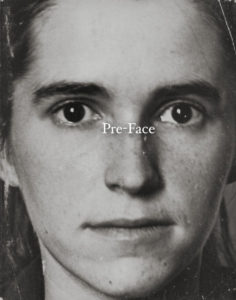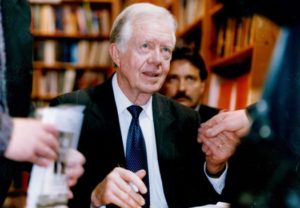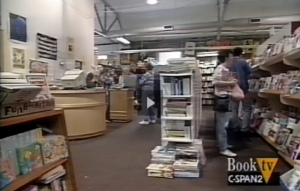David Wilk interviews Russell Banks about Lillabulero magazine
February 4, 2018 by David
Filed under Publishing History, PublishingTalks
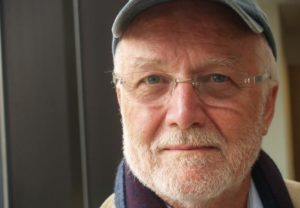 Publishing Talks began as a series of conversations with book industry professionals and others involved in media and technology, mostly talking about the future of publishing, books, and culture. As every media business continues to experience disruption and change, I’ve been talking with some of the people involved in our industry about how publishing might evolve as it is affected by technology and the larger context of culture and economics.
Publishing Talks began as a series of conversations with book industry professionals and others involved in media and technology, mostly talking about the future of publishing, books, and culture. As every media business continues to experience disruption and change, I’ve been talking with some of the people involved in our industry about how publishing might evolve as it is affected by technology and the larger context of culture and economics.
Over the past few years, the series has expanded to include conversations on many other literary and publishing topics. I’ve talked with editors and publishers who have been innovators and leaders in independent publishing in the past and into the present, and will continue to explore the ebb and flow of writing, books, and publishing in all its forms and formats, to help document the breadth and depth of modern literary publishing.
Listeners will most likely know of Russell Banks for his powerfully written and evocative fiction. His novels include The Darling, The Sweet Hereafter, Cloudsplitter, Rule of the Bone, Affliction, Continental Drift, Searching for Survivors, Trailerpark, among others, as well as a collection of short stories, A Permanent Member of the Family.
The prolific Banks has written poems, stories, and essays that have appeared in The Boston Globe Magazine, Vanity Fair, The New York Times Book Review, Esquire, Harper’s and other magazines and journals. His most recent book is the memoir entitled Voyager.
Banks has been widely honored, having won the Ingram Merrill Award, the John Dos Passos Award, the Literature Award from the American Academy of Arts and Letters. Continental Drift and Cloudsplitter were Pulitzer Prize finalists; Affliction, Cloudsplitter and Lost Memory of Skin were PEN/Faulkner Finalists. He is also the founder and president of Cities of Refuge North America.
I think Russell Banks is among the best writers we have. I’ve been moved and challenged by his writing for a very long time. But the main reason I wanted to talk to Russell for this Publishing Talks series is that he was the co-editor of the important literary magazine and press, Lillabulero. With poet Bill Matthews, Russell started publishing Lillabulero when they were students at UNC in Chapel Hill in 1966. That magazine was an important part of the sixties generation of literary magazines and presses, and along with its many peers and competitors helped build a new literary culture that we are still experiencing today.
In those days, mimeographs and a new generation of small offset printing presses, along with inexpensive postal rates, enabled a low cost of entry for writers and editors to reach a wide audience all over the country and to create a new community of readers that were equally hungry for new work as much as the writers themselves sought audiences. Russell and Bill were at the center of much of the creative energy that was circulating around the country at that time, and Lillabulero quickly earned a reputation for quality writing from new writers.
Bill Matthews passed away far too young, and is missed by all those who knew him and his work; I hope this conversation will help bring him wider attention. And it was a great pleasure and honor for me to have this opportunity to speak with Russell about this period in his illustrious literary career.
Bill Matthews’ son, Sebastian, interviewed Russell for the Fiction Writers Review a few years ago, and that interview is a valuable source as well, and the Paris Review interview with Banks is flat out terrific.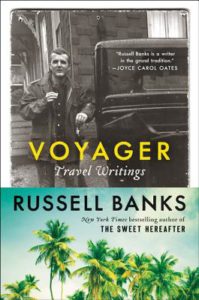

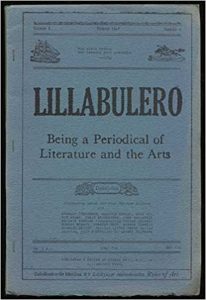
Podcast: Play in new window | Download
David Wilk interviews Joanna Penn of The Creative Penn
September 11, 2017 by David
Filed under Ebooks and Digital Publishing, PublishingTalks, The Future
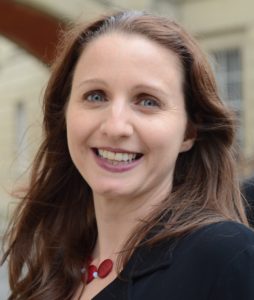 Publishing Talks began as a series of conversations with book industry professionals and others involved in media and technology, mostly talking about the future of publishing, books, and culture. As every media business continues to experience disruption and change, I’ve been talking with some of the people involved in our industry about how publishing might evolve as it is affected by technology and the larger context of culture and economics.
Publishing Talks began as a series of conversations with book industry professionals and others involved in media and technology, mostly talking about the future of publishing, books, and culture. As every media business continues to experience disruption and change, I’ve been talking with some of the people involved in our industry about how publishing might evolve as it is affected by technology and the larger context of culture and economics.
I’ve now expanded this interview series to include conversations that go beyond the future of publishing. I’ve talked with editors and publishers who have been innovators and leaders in independent publishing in the past and into the present, and will continue to explore the ebb and flow of writing, books, and publishing in all sorts of forms and formats, as change continues to be the one constant we can count on.
The rise of self publishing authors is one of the most significant elements of change in the modern publishing landscape. Technology is one element – ebooks and digital short run printing (aka print on demand) give authors access to low cost production and distribution capabilities. The internet as a disseminator of information has helped to democratize publishing skills and knowledge, and generally to drive down the costs of production for books of all kinds. Disruption among traditional publishers has also helped by creating a large pool of experienced freelancers that can provide high level publishing services at reasonable cost.
And crucially, a large group of successful do-it-yourself publishing authors and publishing professionals have become teachers and guides, assisting writers at every level of experience, of every kind of writing, to themselves learn the ropes of what was once a somewhat esoteric set of skills and knowledge. And because change is such a prominent feature in the modern publishing environment, no author can afford to not be in a continual state of learning. The advisors, consultants and teachers who both know “how to do it” and how to keep learning have become tremendously important resources for a wide range of authors.
One of the best of the brightest of these is UK-based writer Joanna Penn. Her fantastic website, The Creative Penn, has become one of the largest of its kind in the literary world. Joanna is an award-winning, best-selling thriller writer and she writes really good nonfiction books for authors. She is now a publisher too (Curl Up Press), a speaker, and of course, an entrepreneur. She’s endlessly energetic, smart, perceptive, and gives consistently great advice. I am a regular reader of her work, and refer to it frequently on the self publishing blog I operate myself.
I could not pass up the opportunity to speak with Joanna about her work as a writer and self publishing guide. It was great fun for me, and I am sure will be for my listeners as well. Even if you never self-publish your work, it is well worth hearing what she has to say. At least for me, the time flew by, and we could easily have talked much longer. Thank you Joanna!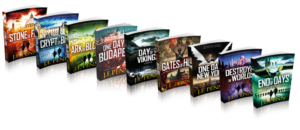

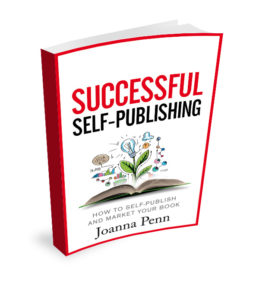
Podcast: Play in new window | Download
David Wilk interviews Steve Clay of Granary Books
July 26, 2017 by David
Filed under Publishing History, PublishingTalks
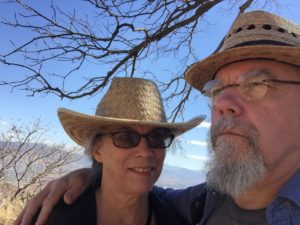 Publishing Talks began as a series of conversations with book industry professionals and others involved in media and technology about the future of publishing, books, and culture. As we continue to experience disruption and change in all media businesses, I’ve been talking with some of the people involved in our industry about how publishing might evolve as our culture is affected by technology and the larger context of civilization and economics.
Publishing Talks began as a series of conversations with book industry professionals and others involved in media and technology about the future of publishing, books, and culture. As we continue to experience disruption and change in all media businesses, I’ve been talking with some of the people involved in our industry about how publishing might evolve as our culture is affected by technology and the larger context of civilization and economics.
I’ve now expanded the series to include conversations that go beyond the future of publishing. I’ve talked with editors and publishers who have been innovators and leaders in independent publishing in the past and into the present, and will continue to explore the ebb and flow of writing, books, and publishing in all sorts of forms and formats, as change continues to be the one constant we can count on.
For the past several years, I’ve been talking to editors and publishers of independent presses about their work, including a number of important literary publishers.
Steve Clay is an old friend, who has been involved with poetry, art and publishing for about the last forty years or so. Steve is the publisher of Granary Books, through which he has done some extraordinary work with an incredible range of poets, artists and crafts people. He has been the instigator of literally hundreds of important standout works of art.
He calls himself an editor, curator, and archivist specializing in the American art and literature of the 1960s,’70s, and ’80s. Steve is also the author, with Rodney Phillips, of A Secret Location on the Lower East Side: Adventures in Writing 1960-1980 (1998) and editor, with Jerome Rothenberg, of A Book of the Book: Some Works & Projections about the Book & Writing. He lives in New York City.
But this outline of his work barely scratches the surface of Steve’s work. In our conversation, I tried to give him the opportunity to talk broadly about the scope of his creative work. He is truly an exemplar of the powerful nexus of writing, editing, and publishing, the “making public” work so critical to art and those who make and experience it. His work is a gift I urge you to spend some time to discover and explore on your own.
A good start is to visit the Granary Books website. Then go to the absolutely essential From a Secret Location: Poetry, Little Mags, Small Presses, and transient documents from the mimeo era and beyond.
There is another useful interview with Steve conducted by the brilliant poet Bill Corbett for the Paris Review here.
When Columbia University, which purchased the Granary Books archive, opened their first exhibit from the Granary archives in 2015, Mark Dimunation, chief of the Rare Book and Special Collections Division of the Library of Congress said about Steve: “Beginning in 1985 he has concocted a mix of poets, artists, printers and craftspeople whose work defines an era and fundamentally shapes our understanding of the artists’ book.”
Enjoy!
Pre-Face image from A Secret Location on the Lower East Side: Adventures in Writing, 1960–1980 (The New York Public Library and Granary Books, 1998), based on Bernadette Mayer, Studying Hunger (New York and Bolinas, CA: Adventures in Poetry and Big Sky, 1975). Cover photograph of the author by Ed Bowes.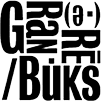
Podcast: Play in new window | Download
David Wilk interviews Infinite Ideas publisher Richard Burton
July 5, 2017 by David
Filed under Ebooks and Digital Publishing, Publishing History, PublishingTalks, The Future
 Publishing Talks began as a series of conversations with industry professionals about the future of publishing, books, and culture. As we continue to experience disruption and change in all media businesses, I’ve been talking with some of the people involved in our industry about how the book business might evolve as our culture is continues to be affected by technology and macro-economic factors.
Publishing Talks began as a series of conversations with industry professionals about the future of publishing, books, and culture. As we continue to experience disruption and change in all media businesses, I’ve been talking with some of the people involved in our industry about how the book business might evolve as our culture is continues to be affected by technology and macro-economic factors.
Over the years I’ve expanded this series to include conversations that go beyond the future of books and publishing. I’ve talked with editors, publishers, booksellers and others who have been innovators and leaders in independent publishing, and will continue to explore the ebb and flow of writing, books, and publishing in all sorts of forms and formats, as change continues to be the one constant we can count on.
I continue to be interested in the ways that publishers might reinvent themselves in order to be able to succeed in a challenging sales and marketing environment. Most publishers acknowledge that the business model that worked for so many years, which relied on bookstores and other retailers to stock a wide range of books, simply does not work now that we are in the age of Amazon.
In fact, there are distinct, though perhaps short term, advantages to a consolidated market – lower cost of sales, better inventory management, and lower returns rates, principally. But having ceded direct knowledge of actual customers to intermediaries, foregoing the meaning of their brands for consumers, and working diligently to protect existing pricing models, all pose difficulties to the future business proposition for commercial publishers.
Some publishers have decided to change their models to address these concerns. One who has found a way to adapt to a changing book selling environment is Infinite Ideas, an innovative publisher based in Oxford, UK. Founded and operated by Richard Burton to publish business content, Infinite Ideas has literally reinvented itself over the past few years, and now focuses on books about wine and spirits, with a digital printing underpinning, and a strong direct to consumer and special markets focus.
Publishers and publishing observers will find my conversation with Richard to be of interest, and the thinking that led to this model may demonstrate some valuable lessons for anyone connected to books and publishing today.
Aside from having had success in publishing over an interesting and varied career, Richard has a background in literature. He holds a PhD on the early poetry of W.B. Yeats, and recently authored a significant biography of the important Northumbrian poet, Basil Bunting, A Strong Song Tows Us, which was published by Infinite Ideas in the UK and by Prospecta Press in the US.

Podcast: Play in new window | Download
David Wilk interviews Hungry Minds Bookstore Founder David Unowsky
May 31, 2017 by David
Filed under Publishing History, PublishingTalks
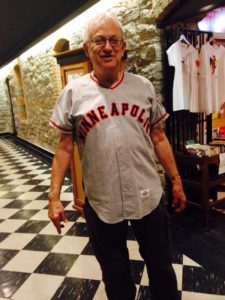 Publishing Talks began as a series of conversations with book industry professionals about the future of publishing, books, and culture. As we continue to experience disruption and change in all media businesses, I’ve been talking with some of the people involved in our industry about how the book business might evolve as our culture is continues to be affected by technology and macro-economic factors.
Publishing Talks began as a series of conversations with book industry professionals about the future of publishing, books, and culture. As we continue to experience disruption and change in all media businesses, I’ve been talking with some of the people involved in our industry about how the book business might evolve as our culture is continues to be affected by technology and macro-economic factors.
I’ve now expanded this series to include conversations that go beyond the future of books and publishing. I’ve talked with editors, publishers, booksellers and others who have been innovators and leaders in independent publishing, and will continue to explore the ebb and flow of writing, books, and publishing in all sorts of forms and formats, as change continues to be the one constant we can count on.
For the past several years, I’ve been talking to editors and publishers of independent presses about their work, including a number of important literary publishers. In this conversation, I am speaking with an old friend and colleague, David Unowsky, founder of the outstanding St. Paul bookstore, the Hungry Mind, which evolved into many other book related ventures, including a literary review and a successful independent press.
The store eventually sold its name to help stay in business in the face of ever increasing financial pressures, and ultimately, under its new name, Ruminator Books, closed in 2004. Which means it was in business for over 30 years, and was for most of that time an incredibly important place, not only to Twin Cities residents, but for the many writers and publishers whose work the store supported, and importantly provided an entry point into the book business for many individuals who have gone on to a wide variety of positions in the book industry.
The Hungry Mind was and remains for many, a special place, and David Unowsky was its beating heart and soul. I’m really pleased to have the chance here for David to talk about his work as a bookseller, communitarian, publisher and entrepreneur. David and “the Mind” – and all the wonderful people and books that passed through its doors – are central to our understanding of what might eventually be considered a “golden age” of books in our country.
Jan. 12, 1994: Former President Jimmy Carter made an appearance at the Hungry Mind Bookstore in St. Paul to sign his latest book,”Turning Point: A Candidate, a State and a Nation Come of Age.” In the book, Carter describes how his first race in the pre-civil-rights South almost was taken away by a political boss.
Photo: Minneapolis Star Tribune.
Screen shot from a 1998 C-Span program about Hungry Mind
Podcast: Play in new window | Download
David Wilk interviews publisher and poet Merrill Leffler
December 18, 2016 by David
Filed under Publishing History, PublishingTalks
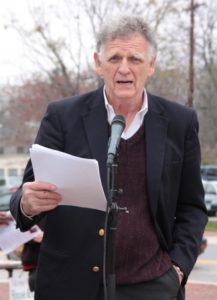 Publishing Talks began as a series of conversations with book industry professionals and others involved in media and technology about the future of publishing, books, and culture. I’ve talked with many people about how publishing is evolving as our culture is affected by technology within the larger context of changes in civilization and economics.
Publishing Talks began as a series of conversations with book industry professionals and others involved in media and technology about the future of publishing, books, and culture. I’ve talked with many people about how publishing is evolving as our culture is affected by technology within the larger context of changes in civilization and economics.
I’ve broadened the series to include conversations with editors and publishers who have been innovators and leaders in independent publishing both in the past and into the present. Through these talks, I hope to continue to explore the ebb and flow of writing, books, and publishing in all forms and formats, as change continues to affect our lives.
For the past several years, I’ve been talking to editors and publishers of independent presses about their work, including a number of important literary publishers. Most recently, I had the pleasure of speaking with Merrill Leffler, the co-founder and publisher of Dryad Press. Leffler and his publishing program have been fixtures in the Washington, D.C. area poetry and indie press scene, but are by no means local in interests or scope of work.
Merrill and his friend Neil Lehrman published the first issue of Dryad, a small poetry magazine, in 1968. Their journal, like many others in that era, began as a quarterly. After the first several issues, their publication dates became more variable, and in roughly 1975, Dryad evolved into Dryad Press — two issues of the magazine were sent to subscribers as books. In a further evolution over the years Dryad expanded from publishing poetry to include fiction and non-fiction as well.
With almost a half century of self-taught publishing behind him, Merrill Leffler, a writer and poet of some note himself, has much to talk about. In this conversation, we talked about the history of Dryad and its evolution as part of the modern era of independent publishing, as well as poetry, fiction, and much more.
Compared to many other writers and independent press publishers, Leffler has an unusual and singular background. He was trained as a physicist, worked for NASA’s rocket program and was the senior science writer at the University of Maryland Sea Grant Program, where he focused on research involving the biology of the Chesapeake Bay. In addition, for a number of years he taught English at the US Naval Academy in Annapolis.
Merrill Leffler has also published three collections of his poetry, most recently a collection called Mark the Music. There’s a great article about him (“Can a poet lose weight by snacking on poems?”) that mentions his role as the Poet Laureate of Takoma Park, Maryland here. And an excellent piece about Dryad and its history by Leffler at a DC area literary website called Splendid Wake.
Leffler is warm, generous, and was a pleasure for me to speak with. I hope you enjoy this interview as much as I did! 
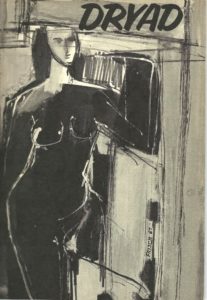
Podcast: Play in new window | Download
David Wilk interviews poet and publisher Bill Corbett
October 30, 2016 by David
Filed under Publishing History, PublishingTalks
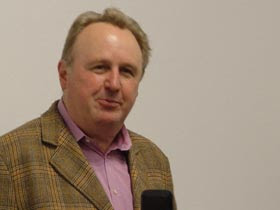 Publishing Talks began as a series of conversations with book industry professionals and others involved in media and technology about the future of publishing, books, and culture. As we continue to experience disruption and change in all media businesses, I’ve been talking with some of the people involved in our industry about how publishing might evolve as our culture is affected by technology and the larger context of civilization and economics.
Publishing Talks began as a series of conversations with book industry professionals and others involved in media and technology about the future of publishing, books, and culture. As we continue to experience disruption and change in all media businesses, I’ve been talking with some of the people involved in our industry about how publishing might evolve as our culture is affected by technology and the larger context of civilization and economics.
I’ve now expanded the series to include conversations that go beyond the future of publishing. I’ve talked with editors and publishers who have been innovators and leaders in independent publishing in the past and into the present, and will continue to explore the ebb and flow of writing, books, and publishing in all sorts of forms and formats, as change continues to be the one constant we can count on.
For the past several years, I’ve been talking to editors and publishers of independent presses about their work, including a number of important literary publishers. It’s a great pleasure for me to add Bill Corbett to this group. He’s been a key figure in the Boston literary scene for more than forty years, though he has now moved to Brooklyn.
Corbett’s house in the South End was an essential literary salon for local and many visiting artists, poets, and writers. Corbett has been active in what has been known as the “New York School” of poets, with a deep and abiding interest in the intersections of art and poetry. In a review of Corbett’s All Prose, Kevin Gallagher said “Corbett is ambassador to a strange land.”
Editing and publishing have also been central to Corbett’s work. He edited the literary journal Fire Exit with Fanny Howe and The Boston Eagle, with Lewis Warsh and Lee Harwood, wrote for the Boston Phoenix, and has been involved with literary magazines Ploughshares, Agni, and Grand Street. In 1999, Corbett founded Pressed Wafer, a small press publishing poetry, essays, and art writing. Corbett taught writing at MIT, and also has taught at Harvard and Emerson.
Patrick Pritchett summed up Corbett’s work rather well as follows:
For several decades now, Corbett has been one of our leading men of letters – the phrase itself has been rendered almost extinct in this age of ubiquitous bloggery and relentless peer-review – but I use it here to indicate a breadth of range and a fineness of attention that once upon a time was the norm, rather than the exception. As poet, essayist, memoirist, art critic, literary historian, publisher and tireless promoter of other writer’s work, Corbett is – yet ought not to be – sui generis. But even if the present time were more thickly populated by writers of comparable range, he would still be a force to be reckoned with, in a category of his own.
In this conversation, we talked about a wide range of topics, but it seems we may have barely scratched the surface of Corbett’s work in art and writing. I hope we will have a chance to talk again soon.
Links:
Pritchett essay about Bill Corbett on the blog Writing the Messianic
Pressed Wafer books “poetry fiction essays art memoir etc”
Podcast: Play in new window | Download
David Wilk interviews Peter Costanzo of Associated Press
October 2, 2016 by David
Filed under Ebooks and Digital Publishing, PublishingTalks, Technology, The Future
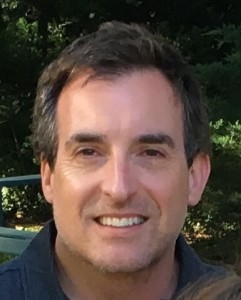 Publishing Talks began as a series of conversations with book industry professionals and others involved in media and technology about the future of publishing, books, and culture. As we continue to experience disruption and change in all media businesses, I’ve wanted to talk with people involved in our industry about how publishing might evolve as our culture is so influenced by technology, within the larger context of a change across human civilization.
Publishing Talks began as a series of conversations with book industry professionals and others involved in media and technology about the future of publishing, books, and culture. As we continue to experience disruption and change in all media businesses, I’ve wanted to talk with people involved in our industry about how publishing might evolve as our culture is so influenced by technology, within the larger context of a change across human civilization.
This series has expanded to include conversations that go beyond the future of publishing. I’ve talked with editors and publishers who have been innovators and leaders in independent publishing in the past and into the present, and will continue to explore the ebb and flow of writing, books, and publishing in all sorts of forms and formats, as change continues to be the one constant we can count on.
Back in 2011 I spoke with my friend Peter Costanzo, who even then was one of the most experienced and knowledgeable digital thinkers in the book industry. Five years later, as digital publishing has evolved and to some extent stabilized, I thought it would be useful to speak to him again to benefit from his perspective as an active participant in this aspect of our industry.
Peter is now the Digital & Archival Publishing Manager for The Associated Press. He is an award-winning book producer who also teaches the “New Media Technology: Formats and Devices” course at NYU.
Peter is also now known for being the person who taught Donald J. Trump (yes that guy) how to use Twitter! This story was widely reported earlier this year, gaining Peter considerable attention and perhaps, notoriety. Here is what the AP said in its story:
Costanzo crossed paths with Trump in 2009 when he was working as online marketing director for the publisher putting out the businessman’s book, “Think Like a Champion.” Twitter was still in its infancy at the time. But Costanzo saw the 140-character-per-message platform as a new tool that the real estate mogul could use to boost sales and reach a broader audience.
He was given seven minutes to make his pitch to Trump — “Not five minutes, not 10,” Constanzo said — in a boardroom at Trump Tower in Manhattan that appeared to be the same one used on Trump’s reality television show.
Trump liked what he heard.
“I said, ‘Let’s call you @RealDonaldTrump — you’re the real Donald Trump,'” Costanzo said. “He thought about it for a minute and said, ‘I like it. Let’s do it.'”
Our talk for this occasion focused on much more serious and meaningful matters, however.
You can follow Peter on Twitter @PeterCostanzo and Writerscast @writerscast.
Podcast: Play in new window | Download
David Wilk interviews Lee Klancher of Octane Press
September 6, 2016 by David
Filed under Publishing History, PublishingTalks
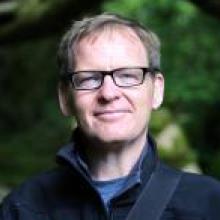 Publishing Talks began as a series of conversations with book industry professionals and others involved in media and technology about the future of publishing, books, and culture. I’ve talked with publishing industry leaders about how publishing has and will continue to evolve and now include conversations that go beyond the future of publishing. I’ve had conversations with editors and publishers who have been innovators and leaders in independent publishing in the past and present. This series of talks continues to explore the ebb and flow of writing, books, and publishing.
Publishing Talks began as a series of conversations with book industry professionals and others involved in media and technology about the future of publishing, books, and culture. I’ve talked with publishing industry leaders about how publishing has and will continue to evolve and now include conversations that go beyond the future of publishing. I’ve had conversations with editors and publishers who have been innovators and leaders in independent publishing in the past and present. This series of talks continues to explore the ebb and flow of writing, books, and publishing.
For the past several years, I’ve been talking to editors and publishers of independent presses about their work. Many of them have been literary publishers. But there are a number of really excellent independent presses that have achieved success in other subject areas. It usually requires being specialized and knowledgeable about a specialized field, and being integral to a specific community of enthusiasts and readers, to find and sustain success.
Octane Press is one such endeavor. This fine publisher focuses on cars, farm machines, motorsports and motorcycles. This may seem a relatively narrow niche of readers, but it is one that works well for this publisher. Founded by photographer, writer and editor Lee Klancher, Octane Press is an excellent example of how to successfully build a print-based publishing business in the modern era. The company has won an array of awards, and has grown steadily since it began. I am very pleased to have had the opportunity to talk to Lee about his work and the story of Octane Press, and I think listeners interested in contemporary publishing will find his story compelling and his experience valuable.
Lee Klancher has been publishing great stories for more than twenty years. As an editor and publisher, he has worked on some of the most-respected and best-selling books in transportation publishing. He is a prolific author and an excellent photographer, and has contributed content to more than 30 books, as well as dozens of national magazines including Men’s Journal, Draft, and Motorcyclist.
Lee has taught writing and photography at the Minneapolis College of Art and Design. He is best-known for his photography of collectible farm tractors that appears in his books and calendars. Lee lives in Austin, Texas, where Octane Press is located. 

Podcast: Play in new window | Download
David Wilk interviews Brooke Warner of She Writes Press
July 19, 2016 by David
Filed under PublishingTalks, The Future
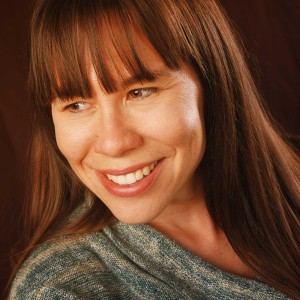 Publishing Talks began as a series of conversations with book industry professionals and others involved in media and technology about the future of publishing, books, and culture. As we continue to experience disruption and change in all media businesses, I’ve been talking with some of the people involved in our industry about how publishing might evolve as our culture is affected by technology and the larger context of civilization and economics.
Publishing Talks began as a series of conversations with book industry professionals and others involved in media and technology about the future of publishing, books, and culture. As we continue to experience disruption and change in all media businesses, I’ve been talking with some of the people involved in our industry about how publishing might evolve as our culture is affected by technology and the larger context of civilization and economics.
I’ve now expanded the series to include conversations that go beyond the future of publishing. I’ve talked with editors and publishers who have been innovators and leaders in independent publishing in the past and into the present, and will continue to explore the ebb and flow of writing, books, and publishing in all sorts of forms and formats, as change continues to be the one constant we can count on.
I really enjoy talking to the innovators in our industry who are creating new modes of publishing and opportunities for writers. Brooke Warner and Kamy Wicoff founded She Writes Press in 2012 to provide writers with new publishing opportunities. Kamy operated the online community, She Writes, which was created to connect and serve women writers, both established and aspiring, and Brooke came from independent publishing.
Brooke’s first job in publishing was with the renowned North Atlantic Books in Berkeley (founded by Richard Grossinger and Lindy Hough). Subsequently, she was Executive Editor at Seal Press, working there for eight years. Toward the end of her time there, she felt she was witnessing firsthand the contracting publishing environment, where as editor, she was frequently rejecting well-written books, simply because the authors she was working with did not have the kinds of “author platforms” that commercial publishers now virtually require.
Kamy and Brooke envisioned a new kind of publishing company that would enable authors to be invited to publish based on the merit of their writing alone. They wanted to establish a publishing business for women writers that would itself enable the kind of a platform that could launch – and grow – the writing careers of their client authors. In 2014, She Writes Press became part of SparkPoint Studio, LLC., whose CEO is Crystal Patriarche.
She Writes is now a solid publishing partner for authors who might otherwise struggle with self publishing. With a strong editorial effort, traditional book distribution (through Ingram Publisher Services) and an in-house marketing and publicity team (through Patriarche’s publicity company, BookSparks) available to SWP authors, She Writes Press has become successful in the emerging category of “hybrid” publishers.
In this interview, where Brooke explains how She Writes works and the problems it is solving for now more than a hundred writers, and talks about the current and future of trade book publishing.
In addition to being publisher of She Writes Press, Brooke is president of Warner Coaching Inc., and author of Green-light Your Book, What’s Your Book?, How to Sell Your Memoir, and the co-author of Breaking Ground on Your Memoir. She currently sits on the boards of the Independent Book Publishers Association, the Bay Area Book Festival, and the National Association of Memoir Writers. She blogs actively on Huffington Post Books and SheWrites.com. She lives and works in Berkeley, California.
Length alert – we had a good time talking so this interview runs just over 45 minutes.
Podcast: Play in new window | Download

